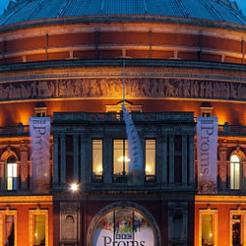Two Royal Albert Hall trustees have been pocketing more than £100,000 a year from touting hundreds of concert and charity event tickets at vastly inflated prices, a national newspaper alleged today.
A Times investigation alleges that Oxford-educated writer Leon Baroukh and Richard Waterbury, the chairman of pensions at a chemicals firm, have been using their debenture-seat tickets for their own personal profit – despite such activity being condemned by the Charity Commission and the Royal Albert Hall itself.
Debenture tickets are for seats that were reserved on a 999-year lease when the Royal Albert Hall opened in 1871 and have been passed down through generations. According to The Times, Baroukh and his relatives own 51 such seats, whereas Waterbury and his family have 29. The paper alleges that the touted tickets include entry to a concert in aid of Teenage Cancer Trust, and that Waterbury sold his £50 tickets for £299.99 each plus fees, whilst tickets allocated to Baroukh’s father went for £102.27 each. It also quotes Baroukh as saying that his actions were legitimate because he did not sell tickets “directly”, rather through an agent, and that debenture holders are “entitled to resell”.
However President of the council of the Royal Albert Hall, Peta Travis, reacted with the following: "Trustees of the Royal Albert Hall should at all times act with integrity and avoid personal conflicts of interest. They should avoid any activities which might place the charity’s reputation at undue risk. I am undertaking a thorough review of how council trustees should deal with their seat allocation and am in urgent discussion with council members."
A Charity Commission spokeswoman said in a statement that it was actively monitoring the Royal Albert Hall's progress in implementing plans to address issues of private benefits to its members – originally brought up in 2009 following an approach by the charity to the Commission. "We are therefore aware that some trustees continue to benefit financially as a result of their membership rights," the statement said. "We will be meeting the trustees again soon to discuss the issue further. This is a highly unusual case, which raises complex legal issues for the charity's trustees and for us as its regulator."
The Teenage Cancer Trust stated its position as the following: “An incredible amount of hard work and good will goes into organising Concerts for Teenage Cancer Trust at the Royal Albert Hall, and this includes the artists who all give their time for free. Teenage Cancer Trust strongly believes it is wrong for individuals to hijack these efforts and personally profit by selling tickets on the secondary market.
“We do not allocate any tickets to secondary ticket agencies and work with official fan clubs to make sure that fans are able to buy tickets at face value. We believe the only people entitled to profit from our event are young people with cancer."










